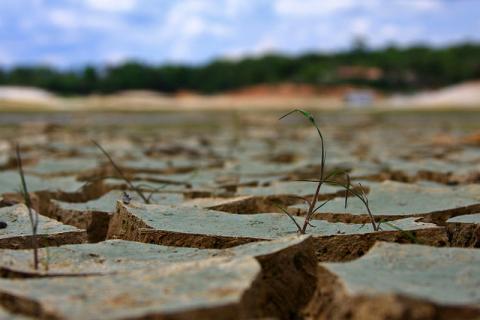
As we open this Lenten season of repentance and renewal, the opening prayer for today’s Eucharistic celebration begins, “Grant, O Lord, that we may begin with holy fasting this campaign of Christian service, so that, as we take up battle against spiritual evils, we may be armed with weapons of self-restraint.” One of the greatest contemporary battles that we face today is the struggle to protect our natural world, which many indigenous cultures affectionately refer to as “Mother Earth,” which includes the interconnected web of living creatures that sustains and nurtures the balance of all life on this planet.
2014 was Earth’s hottest year in over 130 years of recorded history, back to 1880. Incidentally, the 10 warmest years on record have all occurred since 1997 (The New York Times, January 16, 2015). A recent scientific study concluded that ocean life faces imminent mass extinction if big changes are not made immediately in our exploitative way of living (Science, January 16, 2015: Vol. 347 no. 6219). Indeed, scientists have been warning that planetary warming due to human activity poses long-term risks to civilization and threatens the very survival of all life on this planet.
Currently, the worst drought in history is threatening the largest city in Latin America, São Paulo, where I live and work. We are feeling the threat of this global crisis in our bodies as we face the stark reality of water rationing. In some parts of the city, people only have access to water for a few hours each morning. In other parts of the city, people are still carelessly wasting water by washing down their front steps with a water hose. Perhaps it is only when we must go without water for a day that we will realize how precious it is for our very survival. In this way, the rationing of water is quickly becoming an imposed fast that turns us towards conversion.
In today’s first reading, the prophet Joel speaks God’s words to us: “Come back to me with all your heart, fasting, weeping, mourning. Let your hearts be broken, not your garments torn, turn to the Lord your God again, for he is all tenderness and compassion, slow to anger, rich in graciousness, and ready to relent” (Joel 2, 12-13). Turning back to God means honoring and caring for all God’s gifts of creation, which sustain and nurture life. In today’s Gospel, Matthew challenges us to go beyond performing superficial acts of prayer and sacrifice and commit ourselves to making deep changes in our way of living that will bring us in harmony with God and the universe.
The prophet Joel is clear that our response must be both personal and communal. He calls us to gather together and make a common fast so that we may be spared! It is only by coming together in prayer and reflection that we can come up with solutions to protect our water, air and land, as well as all living creatures and our sources of energy. It is clear today that this reflection cannot take place only between church walls, but must also engage civil society, especially powerful corporations and nations, calling them to their share of responsibility in protecting our natural resources. Time and time again, the Church warns us that we cannot live according to an exploitative profit motive, but we must seek to live in harmony with our whole global community, recognizing the impact that our actions have on others, especially those whom are less powerful and most vulnerable among us.
Biblical tradition affirms that when we seek to care for the weak and powerless, not in a paternalistic, condescending sort of way, but in recognizing our equal rights to dignity and the fullness of life, then we will be living in harmony with God’s will and the vision of the Reign of God!
“Have mercy on us, O Lord, for we have sinned. Give me again the joy of your help; with a spirit of fervor sustain me, O Lord, open my lips and my mouth shall declare your praise” (Psalm 51, 3-4, 14, 17).
